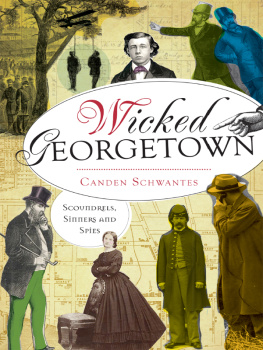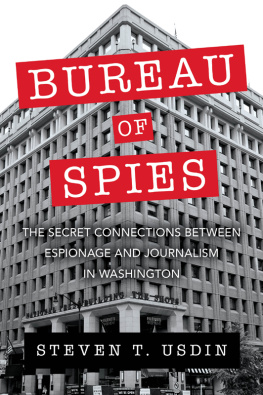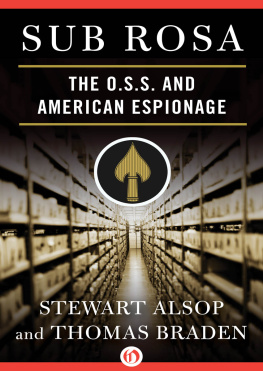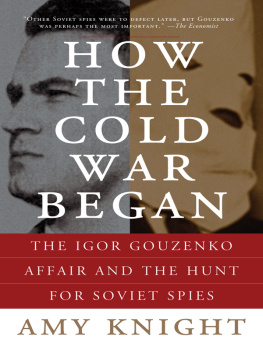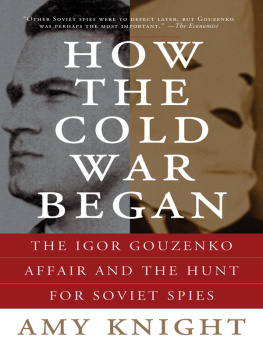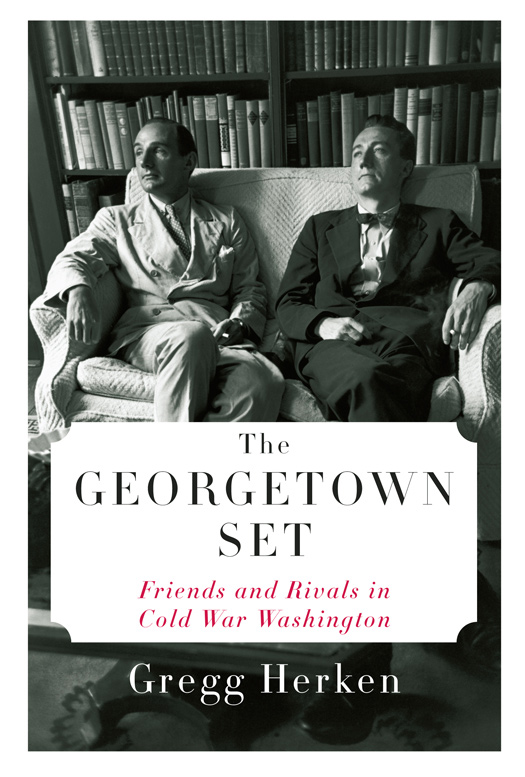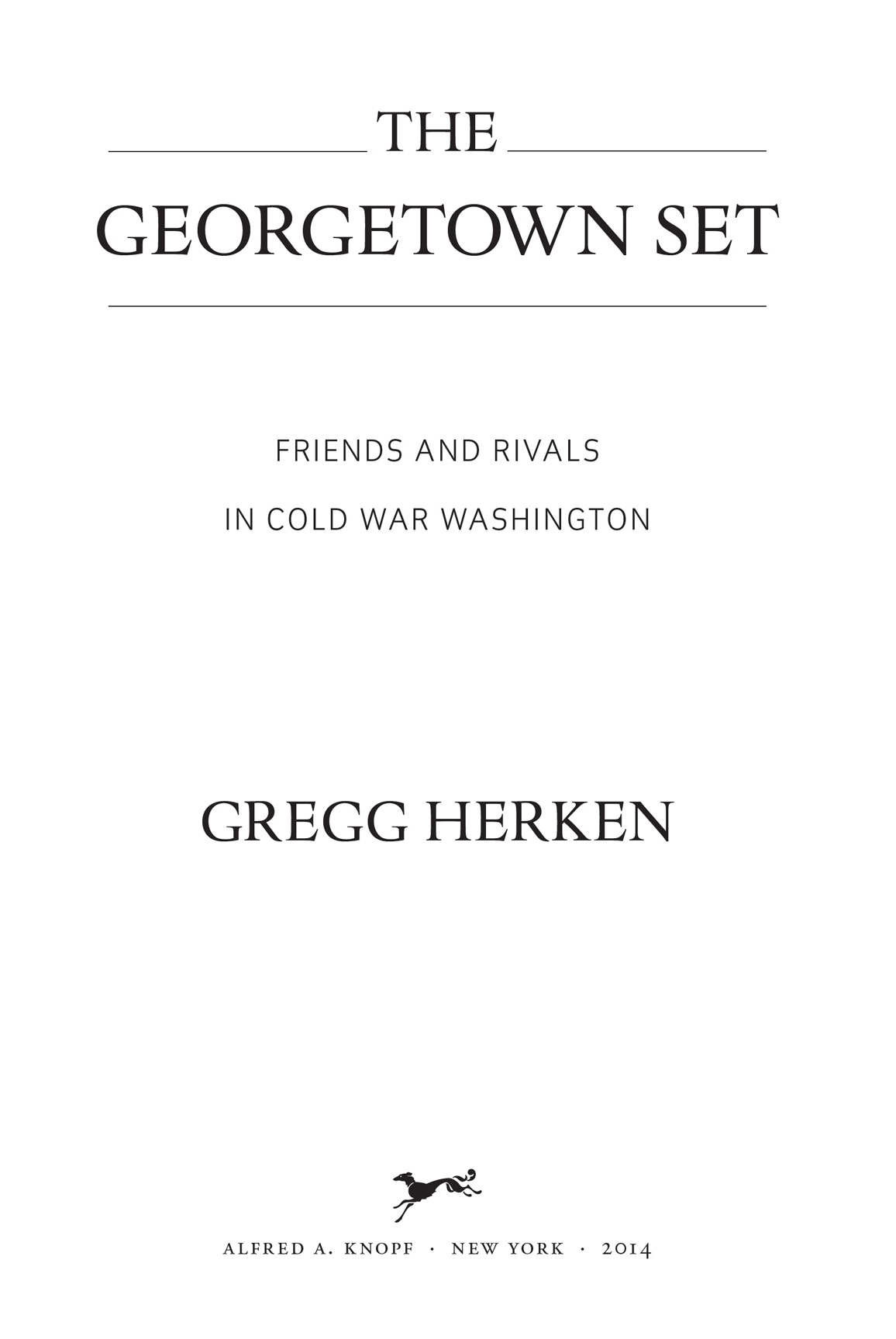THIS IS A BORZOI BOOK
PUBLISHED BY ALFRED A. KNOPF
Copyright 2014 by Gregg Herken
All rights reserved. Published in the United States by Alfred A. Knopf, a division of Random House LLC, New York, and in Canada by Random House Canada Limited, Toronto, Penguin Random House companies.
www.aaknopf.com
Knopf, Borzoi Books, and the colophon are registered trademarks of Random House LLC.
Letters from Jacqueline Kennedy reprinted with permission.
Library of Congress Cataloging-in-Publication Data
Herken, Gregg, [date]
The Georgetown set : friends and rivals in Cold War Washington / by Gregg Herken.
First edition.
pages cm
Includes bibliographical references and index.
ISBN 978-0-307-27118-1 (hardcover) ISBN 978-0-385-35304-5 (eBook)
1. Georgetown (Washington, D.C.)History20th century. 2. Washington (D.C.)History20th century. 3. Political cultureWashington (D.C.)History20th century. 4. Cold War. 5. Upper classWashington (D.C.)History20th century. 6. Washington (D.C.)Social life and customs20th century. 7. Georgetown (Washington, D.C.)Biography. 8. Washington (D.C.)Biography. I. Title.
F202.G3H47 2014
975.3dc23 2013047033
Map illustration by Robert Bull
Front-of-jacket photograph: Joseph and Stewart Alsop Henri Cartier-Bresson/Magnum Photos
Jacket design by Carol Devine Carson
First Edition
v3.1
In memory of
Marguerite M. Herken
19112013
The hand that mixes the Georgetown martiniis time and again the hand thatguides the destiny of the Western world.
HENRY KISSINGER
CONTENTS
Prologue:
Salonisma: When Washington Worked
PART I
THE WASP ASCENDANCY
CHAPTER ONE
A Political Village
CHAPTER TWO
Some Higher Realm of Intellect and Power
CHAPTER THREE
Is War Inevitable?
CHAPTER FOUR
Would He Go into the Woods?
CHAPTER FIVE
To Fight Fire with Fire
CHAPTER SIX
Some Brave New Approach
CHAPTER SEVEN
A Land of Conspiracy, Run by Conspirators
CHAPTER EIGHT
Why Has Washington Gone Crazy?
CHAPTER NINE
A Rather Serious Border Incident
CHAPTER TEN
Venomous, Exciting and Pretty Frightening
PART II
BOLD EASTERNERS
CHAPTER ELEVEN
Stray and Gusty Winds
CHAPTER TWELVE
The Wild Pigs of Capitol Hill
CHAPTER THIRTEEN
An Act of Very Great Folly
CHAPTER FOURTEEN
A Chap of Great Promise
CHAPTER FIFTEEN
The Prophet of the Missile Gap
CHAPTER SIXTEEN
A Breathless Time, Full of Promise and Energy
CHAPTER SEVENTEEN
We Will All Fry
CHAPTER EIGHTEEN
How Great Is Ones Duty to Truth?
PART III
DGRINGOLADE
CHAPTER NINETEEN
The Other Side of the Coin
CHAPTER TWENTY
Im Afraid Joe Is a Cruel Man
CHAPTER TWENTY-ONE
It Was the War That Did Him In
CHAPTER TWENTY-TWO
Nobody Plays by the Rules Any More
CHAPTER TWENTY-THREE
There Is a Feeling of Doors Closing
Epilogue:
Were All So Old or Dead: The End of the Georgetown Set
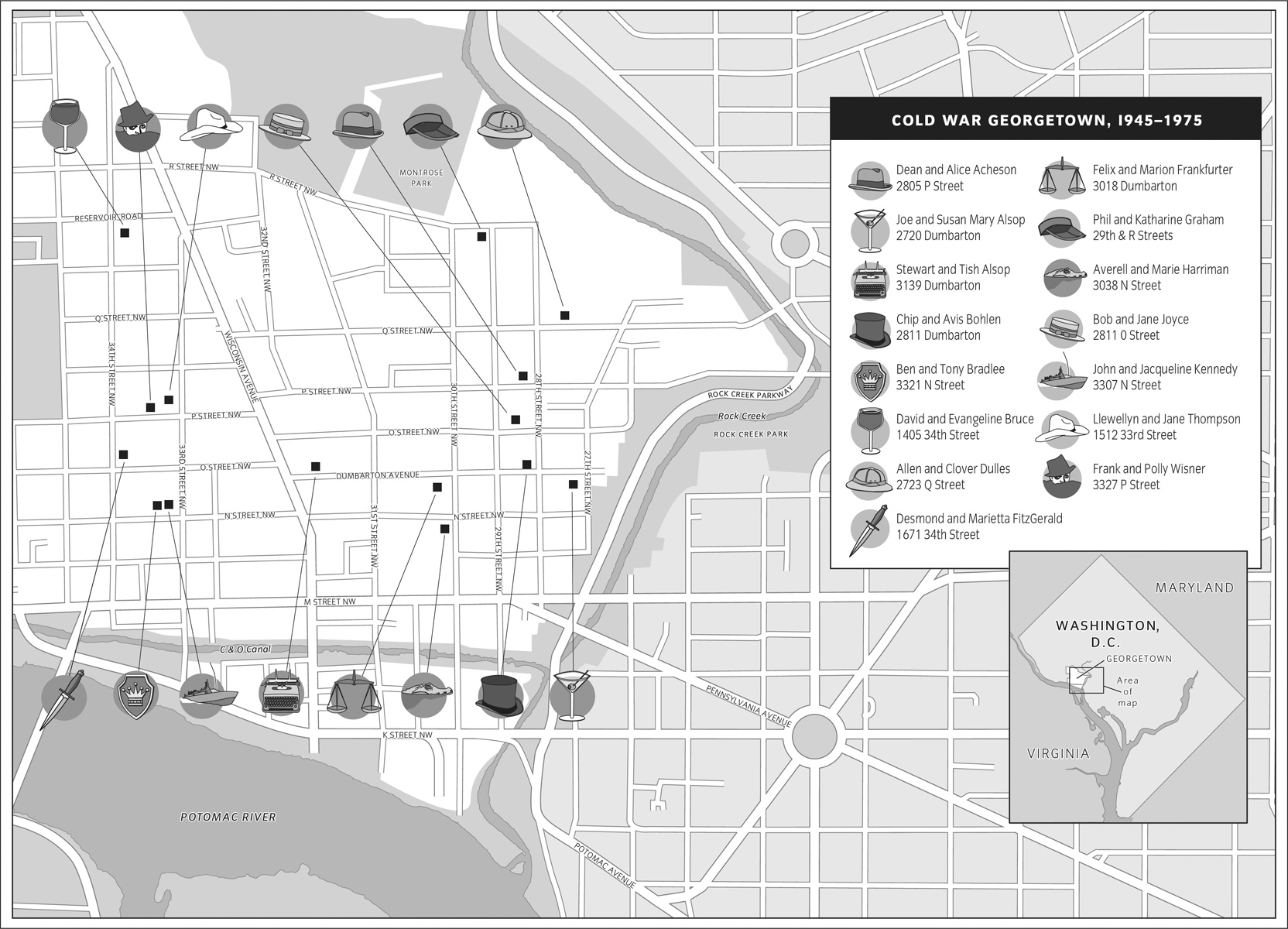

Prologue
Salonisma: When Washington Worked
ON A SUNDAY EVENING in June 1961, President John F. Kennedy was looking for advice, and some help. Less than two weeks earlier, he had met in Vienna with the leader of the Soviet Union, Nikita Khrushchev. For Kennedy, the meeting had been a disaster. Khrushchev had played up the young presidents inexperience and could point to a number of recent setbacks for America in the Cold War. Two months earlier, the Soviet Union had sent the first man into space. Kennedy, at the same time, had had to shoulder the blame for a bloody fiascoa CIA-sponsored invasion that tried, and failed, to overthrow Fidel Castro, the Kremlins client in Cuba. More ominously, Khrushchev had warned Kennedy at Vienna that there would soon be a showdown over the future of Berlin, the Western enclave inside Communist East Germany that was a centerpiece of the Soviet-American confrontation.
The previous Friday, June 16, the White House had announced that the president would spend the weekend at Glen Ora, the nineteenth-century farmhouse in the Virginia hunt country that Kennedy used as a retreat. The official explanation was that the president needed to recuperate from a strained back. Kennedys back problems had indeed grown worse in Vienna, but that was not the reason for his absence from Washington. The president had decided that he would not retreat from Berlin. But Kennedy was worried about how Khrushchev would respond to the administrations new hard lineand, even more important, whether a tough stand on Berlin would have the support of the American people.
To help ensure that it would, Kennedy had summoned, in secret, a few of those whose support he judged crucial to the success of his plan.
Charles Chip Bohlen was a former U.S. ambassador to the U.S.S.R. who had since become a senior adviser to the State Department on the Russians. Philip Graham was publisher of The Washington Post, the capitals most influential newspaper, and had also recently acquired Newsweek magazine. Joseph Alsop was one of Americas best-known political journalists. Since 1946, Joe and his brother Stewart had written a widely read column, Matter of Fact, that appeared in the Post and more than two hundred other newspapers around the country.
Phil Graham and Joe Alsop were also among the presidents oldest friends in Washington. During the 1960 Democratic convention, the two had helped persuade Kennedy to pick the Texan Lyndon Johnson as his running mate. Johnson had captured the critical southern vote for Kennedy, in what turned out to be the centurys closest presidential election. Along with Joe and Susan Mary Alsop, Phil and his wife, Katharine, were Jack and Jackies guests at the first private dinner held in the Kennedy White House.
At Glen Ora, the presidents guests gathered in the living room while the president, seated in a rocking chair, read portions from the transcript of his tense meeting with Khrushchev. He read and reread the sections on Berlin, Bohlen remembered. Kennedy ended with the grim prediction that he had made in response to one of Khrushchevs threats as the summit concluded: Its going to be a cold winter.
Later, during dinner, discussion ranged from Kennedys options in Berlin to the Russians likely response. Since Khrushchevs ultimatum requiring the United States to abandon West Berlin might well result in a Soviet-American military confrontation, the topic of nuclear war also came up. The president had been informed of possible casualties resulting from such a conflict shortly after assuming office. Classified studies estimated that more than 200 million peopleAmericans, Russians, and Chinesemight be killed, with additional millions around the world doomed to a lingering death from radioactive fallout.


